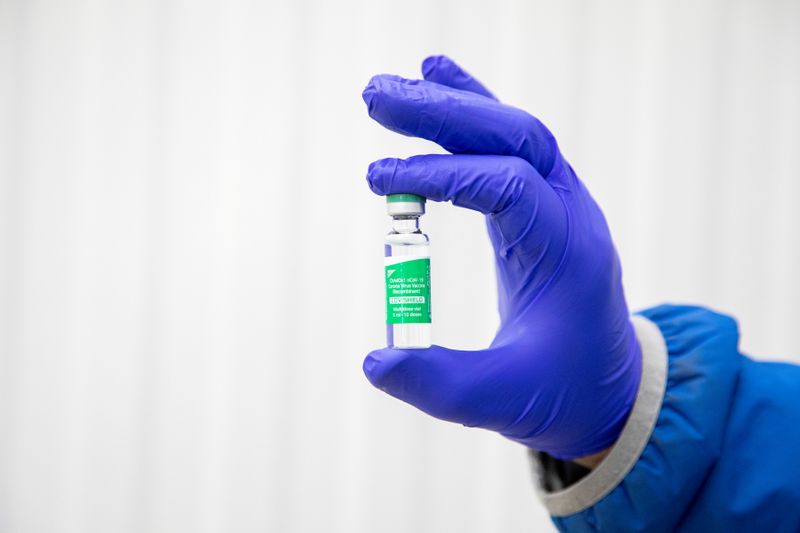By Steve Scherer
OTTAWA (Reuters) - Canada on Tuesday said the AstraZeneca (NASDAQ:AZN) COVID-19 vaccine is safe and will continue to be recommended for use despite criticism from U.S. officials of the drugmaker's analysis of the shot's efficacy in a large trial, health officials said.
"The message is that the efficacy and the safety of the vaccine have been shown," senior Health Canada official Marc Berthiaume said. "It continues to be beneficial for Canadians to prevent COVID-19."
Deliveries of coronavirus vaccines are ramping up in Canada, with some 2 million doses of the Pfizer (NYSE:PFE) Inc/BioNTech SE and Moderna Inc vaccines coming this week. The United States said it is sharing 1.5 million doses of the AstraZeneca vaccine with Canada as early as this week.
The U.S. National Institute of Allergy and Infectious Diseases said on Monday that the independent monitoring board charged with ensuring the safety and accuracy of AstraZeneca's latest trial said the company may have given an incomplete view of the shot's effectiveness. The company has since said it will publish up-to-date results https://www.reuters.com/article/idUSKBN2BF1RE from its latest trial within 48 hours.
"We will look at the complete data package (from the U.S.) sometime in April, and will assess and communicate the results," said Supriya Sharma, chief medical adviser at Health Canada, the federal health ministry. "The bottom line is that doesn't change recommendations on the AstraZeneca vaccine at this time."
There will be a delay of a day or two on delivery of Moderna vaccines this week, Alberta's chief medical officer of health said, adding that bookings for shots will not be affected.
Canada also said it would give C$23.7 million ($18.9 million) to Ontario to open more voluntary isolation sites for those who become infected with the virus and need a place to quarantine as cases surge.
Saskatchewan's provincial government imposed new restrictions in the city of Regina and surrounding area, including a ban on private indoor gatherings, due to a spike in infections caused by highly contagious new virus variants.
Quebec, which has avoided a third wave of infections, will allow its older high school students to attend class daily starting March 29.
Canada has recorded 940,000 virus infections and more than 22,700 deaths from COVID-19.

($1 = 1.2561 Canadian dollars)